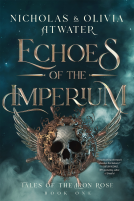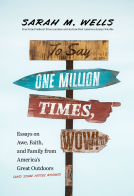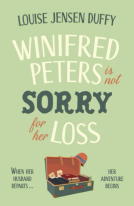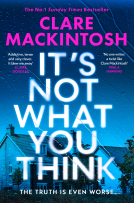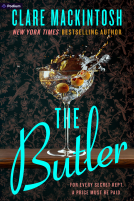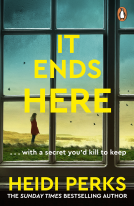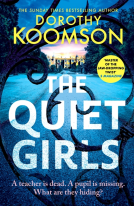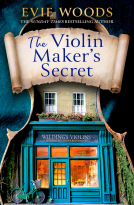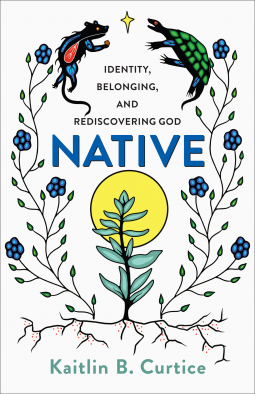
Native
Identity, Belonging, and Rediscovering God
by Kaitlin B. Curtice
This title was previously available on NetGalley and is now archived.
Send NetGalley books directly to your Kindle or Kindle app
1
To read on a Kindle or Kindle app, please add kindle@netgalley.com as an approved email address to receive files in your Amazon account. Click here for step-by-step instructions.
2
Also find your Kindle email address within your Amazon account, and enter it here.
Pub Date 5 May 2020 | Archive Date 30 Jun 2020
Baker Academic & Brazos Press | Brazos Press
Talking about this book? Use #Native #NetGalley. More hashtag tips!
Description
Curtice draws on her personal journey, poetry, imagery, and stories of the Potawatomi people to address themes at the forefront of today's discussions of faith and culture in a positive and constructive way. She encourages us to embrace our own origins and to share and listen to each other's stories so we can build a more inclusive and diverse future. Each of our stories matters for the church to be truly whole. As Curtice shares what it means to experience her faith through the lens of her Indigenous heritage, she reveals that a vibrant spirituality has its origins in identity, belonging, and a sense of place.
Advance Praise
“Kaitlin Curtice is one of the braver writers I know. She won’t smooth any edges for you and she won’t let you change the subject, but she’ll support you digging as deeply for your roots as she has for hers.”—Barbara Brown Taylor, bestselling author of Holy Envy and Learning to Walk in the Dark
“There is no doubt Christianity has been the handmaiden to the destruction of Indigenous nations. Native is more than Kaitlin Curtice’s testament. It is an indigenization of faith and, more important, a moral call not only for the Christian church but for everyone to reckon with the genocidal legacies of US settler colonialism and African slavery. As she humbly puts it, decolonization is an invitation and a gift for humankind to re-establish correct relations with each other—and the earth.”—Nick Estes, cofounder of The Red Nation and author of Our History Is the Future: Standing Rock versus the Dakota Access Pipeline, and the Long Tradition of Indigenous Resistance
“In the pages of Native, Kaitlin B. Curtice is a poet, professor, storyteller, and unapologetic truth teller. This book is required reading for all those committed to learning the truth about the land we live on and the institutions we live inside of. It both stretched me and comforted me—it called me out and called me home. Curtice is a vital artist and teacher, and Native is her most important offering yet. It will remain on my shelf forever.”—Glennon Doyle, author of Untamed and founder of Together Rising
“In Native, Curtice takes the reader along as she bravely weaves together her spiritual, tribal, religious, cultural, and familial history into a cord that anchors her as she makes sense of her self, her world, and her identity. After reading this book, I may just touch a tree now and again and see it as prayer. I’m so grateful for Curtice’s voice.”—Nadia Bolz-Weber, bestselling author, speaker, and public theologian
“In Native, Curtice reminds us why our humanity matters—to explore the divine, to practice solidarity with one another, and to learn to be humble caretakers of this world. She is a brave truth-teller, a prophetic voice we need to be listening to, and Native is a book that will guide us toward a better future.”—Richard Rohr, OFM, Center for Action and Contemplation
“Native is both an expansive meditation on faith through a Potawatomi lens and a powerful vision of living in relationship with divinity and in the world—one that is urgently needed today. Curtice is an essential voice.”—Rabbi Danya Ruttenberg, author of Surprised by God and Nurture the Wow
Available Editions
| EDITION | Other Format |
| ISBN | 9781587434310 |
| PRICE | $18.99 (USD) |
| PAGES | 208 |
Average rating from 33 members
Featured Reviews
Kaitlin Curtice has written a truly fascinating exploration of how her Christian faith relates to her heritage as an indigenous person. She doesn't shy away from difficult conversations - reconciling her whiteness with her nativeness comes to mind - but also treats the hard topics with a graceful, careful hand. I recommend this for any Christian who is looking to expand their knowledge of indigenous peoples in the Americas, as well as for those who want to fight against systemic racism.
We're only two months into the year 2020, but I'm ready to proclaim Kaitlin Curtice's "Native: Identity, Belonging, and Rediscovering God" to be one of the best books of the year.
Having had the opportunity to check out an advanced review copy of "Native" during the exact same week that Curtice found herself on the receiving end of negative feedback from a group of conservative students at Baylor University where she'd been a guest speaker, I worried less about being offended by the material and far more about being overly challenged by it.
I found "Native" to be one of the most satisfying, emotionally resonant, and intellectually stimulating books I've read in quite some time. It convicted me, and certainly not in all good ways, and it made me reflect upon my own experiences as a lifelong person with a disability and how that's impacted my life, my faith, my relationships, and the overall culture with which I identify.
Curtice is an enrolled citizen of the Potawatomi Nation and someone who grew up within a conservative Christian household. Throughout "Native," Curtice explores the tension of these two and the growing tension within her Christian faith as she more fully embraces her Native American culture. "Native" explores the intersection of indigenous spirituality, her Christian faith, and church/organized religion.
In her first book, "Glory Happening: Finding the Divine in Everyday Places," Curtice wrote 50 essays exploring the sacredness of everyday life. With this collection, Curtice explores issues of identity, belonging, and the never-ending, constantly changing journey of finding oneself and finding God.
Have you ever had one of those friends who loved you dearly but you also knew would never hesitate to call you on your stuff?
While I've never met Curtice, that's how she comes off in "Native." She strikes me as a more blunt Rachel Held Evans, a dear friend of Curtice's whom she writes about in one chapter with a tone that could easily be described as immense grief. While Held Evans kind of always came off as the mom/big sister we'd all want to have in life, Curtice comes off as the kind of friend we all need to have in life because they keep us honest and accountable.
Plus, it should be mentioned that amidst all her insight and passion that Curtice's writing is just plain freaking brilliant.
I first became familiar with Curtice's work through her involvement with Sojourner's, whose leadership summit I had the opportunity to attend. The brilliance of Curtice's writing, at least for me, is that she makes the knowledge accessible and is fantastic at communicating it in a way that's understandable and applicable.
I found myself frequently in tears throughout "Native," deeply moved by her stories yet also deeply moved by the ways in which her writing caused me to reflect upon my own life experiences. I began exploring the ways in which I've compromised my disability - a particularly applicable point considering I've been sitting in my home for the past couple of months recovering from a significant hospitalization and limb loss because I simply tried too hard to work around my disability rather than embracing myself as a disabled person.
Ouch.
Curtice's writing helped me identify in my own life that while society stresses ability, the act of living as a disabled person is an act of love to oneself and a rebellion against the norms of a society that refuses to value disability. I'm still in deep reflection on these issues even as I write this review.
Yet, Curtice's writing also challenged me to explore the ways in which I've contributed to white supremacy and to acts that harm indigenous peoples. She uses a term, micro-aggressions, that I'd never have thought applied to me until I read her words, explored her meaning, and realized that I am, indeed, guilty as a person who has long claimed connection to my family's Choctaw roots yet I've never lived within the culture and I've never truly lived as an indigenous person. Curtice communicates these things bluntly yet I sense no aggression in her writing - I sort of imagine she burst a few bubbles at Baylor University, but my guess is they were bubbles that needed it.
I know mine did.
As someone who was raised Jehovah's Witness and who has been kicked out of two churches (Jehovah's Witnesses and Vineyard), I found a myriad of ways that I connected to Curtice's writing. Curtice's voice is absolutely vital and, yes, it's also a voice of challenge and accountability and truth-telling. It's a voice that convicts and it's a voice that preaches from the soul of Christianity and that's frightening for a lot of people.
Personally? I find it refreshingly authentic and exciting.
"Native: Identity, Belonging, and Rediscovering God" is an immersive, engaging book that breezes by rather quickly yet will have you reflecting upon its words and stories and even poetry for quite some time after you've finished. If you are uncomfortable having your faith challenged and you believe the church can do no wrong, then "Native" will either knock you out of that ivory tower (and it's definitely ivory) or it's perhaps not the book for you.
For me? "Native: Identity, Belonging, and Rediscovering God" is unquestionably one of the best books of 2020 and a book I have no doubt I'll revisit again and again.
One of the benefits of the present age is a recognition of the value of different voices and the need to hear the perspective from groups historically marginalized and/or oppressed. This theme is also present in Christianity. Many good works have been written by people of color who profess Jesus as Lord and providing their particular perspective on the faith and its heritage.
The present author continues in that theme as a woman of white and Potawatomian ancestry. This work speaks to her journey in faith, having been raised in a traditionally "white" Baptist experience and faith, and growing in association and connection with her Potawatomi roots.
To that end this work is a good testimonial for the author on that journey and how she is informing her understanding of what God accomplished in Jesus through a lot of her Native values and traditions. She can see and point out the effects of white supremacy and colonialism in the expression of Christianity in America, and display how many of the traditions of the Native Americans are more than amenable to maintain in following Jesus as Lord. The book can also help white people learn about certain aspects of the Native experience: the kinds of things to avoid saying and doing, education about the Native experience, the exhaustion Natives feel in having to explain/justify themselves to white people, etc. Such lessons can also be valuable for people of color who are not Native as well.
The author seems to fully sign on to the modern progressive Christian/Evangelical platform, and the work and its conversation reflect it frequently. Many will be made uncomfortable by the amount of co-opting of her Native heritage in which she engages, and might easily think she has compromised her faith to return to Native ideas and ideologies. I think much of such a reaction is rooted in an inability or unwillingness to perceive how the critics have made American white culture normative; her desire to use Native terms for God, Father, Spirit, and the world are as justified as our use of English terms, and any concern about confusion, distortion, or maintenance of some kind of paganism would be just as real as for calling today Monday, or having a Thursday.
It is for us to listen and learn, even if we ultimately do not fully agree, and in this the book has great benefit.
 Reviewer 258617
Reviewer 258617
As someone who has been following Curtice's work online for several years, I was excited to see she had written a book. I was expecting thick social commentary, that's not what "Native" is. I would describe it as a collection of anecdotes, meditations, and devotionals. She is clearly writing for an audience already familiar with common social justice jargon, and there were times I wish she had gone more in depth on certain topics (such as "decolonizing your faith"). All of that to say, this probably isn't the book to hand your parents to introduce them to the struggles of Indigenous people and the complicity of White Christians in the matter. This is a book for someone who is already "doing the work" and familiar with progressive Christianity. Curtice is a fine writer and "Native" will resonate with readers looking to be more mindful and supportive of Indigenous people in their faith walk.
Books have such incredible power. We grow up thinking that everyone is like we are- that the others believe like we do, hold the same values that we do, have the same world view that we do.
It's beautifully jarring, then, when we read a book that allows us to- for a moment- put on the lenses of the other. Author Kaitlyn Curtis doesn't condemn whiteness. Instead she decentralizes whiteness- forces us to acknowledge that there are ways to commune with the Creator beyond the ways taught by the colonizers.
Part memoir, part call to repentance for the white western church, and part ode to nature, this book is illuminating and challenging. Honestly, I was here for each part. I follow Curtis on social media and met her at a conference, and I was intrigued by the stories that she shared. I, too, am disheartened by the Evangelical church's refusal to recognize its own complicity in racism and oppression. I was captivated by the author's journey to reclaim her heritage and communion with mother earth.
On the other hand, that's a lot of ground to cover in one book, and it requires a certain amount of meandering in the attempt. In particular I would have loved to have heard more of Curtis's own story- more about her reconnection with her Potawatomi heritage.
Nonetheless, I am so grateful for this book and the challenge it presented to me, particularly as a public school teacher and as the white mother of biracial, bi-cultural children. This will not be the last book that I read on this topic.
I received this book from #NetGalley and the author and publisher in exchange for my honest opinion. My thanks to all of them. #Native
“It is heartbreaking when the table of God is not set for all the people of God.” - Kaitlin Curtice
In this book, Curtice somehow manages to write poetically and peacefully about subjects that are anything but- white supremacy, colonization, and more. I found myself drawn to the words and cadence - she is a gifted writer with important things to say. May those that need to hear them read this book.
I first encountered Kaitlin Curtice at the 2018 Evolving Faith conference, and since then I've been following her work and learning from her in so many ways. Her new book 'Native: Identity, Belonging, and Rediscovering God" is a beautiful reflection on one woman's experience learning to embrace her identity as a Potawatomi woman and reconciling that identity with her upbringing in a conservative Evangelical culture. I was captivated by Kaitlin's beautiful writing and her hopefulness in describing a world that honors the land and each other's stories.
Although I have followed Kaitlin Curtice on social media for a long time, this is the first book of hers that I’ve read. Native was exactly the book I needed during this difficult time. I hadn’t realized that she is from Oklahoma, as I am. This book details her journey of growth in her faith and working to break down systems of colonization as a Christian and as a Potawatomi woman. As someone who has struggled mightily with organized religion, her words are a beacon of hope that we can learn to be inclusive and “build a bigger table.” She doesn’t claim to have all the answers, but her words offer a sense of peace and hope that we can all be better humans. This is a very important and necessary book.
 Stephanie H, Reviewer
Stephanie H, Reviewer
I think this is an important book because the author has an important perspective as an Indigenous woman, one who grew up within a white church that basically erased her Indigenous identity. It's so important for the Christian church and community to hear this, in her own words, and face it. Without listening to voices like Curtice's, the white church has little hope of being truly good news for all.
My favorite parts, and most engaging parts, where the descriptions of memories, such as childhood memories or experiences in nature, but I found myself wishing that she would develop them more.
Another reviewer (on another site) wrote that this book uses a lot of social-justice jargon assuming the reader is familiar with the terms, and therefore may not be the first book one ought to recommend as a primer on these issues. I think I agree with that. Even as someone familiar with various social justice communities, sometimes I found myself wishing she would have defined or given background (or more background) for some of the terms, if only that I could better understand more specific ways they apply to this area. With that in mind, I do think this book belongs within perhaps a reading list or library of books as one unique voice with much to add to the conversation.
It's an honor to read the book and take these lessons along with me as a white woman and member of the Christian church
What an unearned gift she has given us through this book, a generous sharing of her journey of reconnecting to her Native heritage, an unprecedented glimpse into her life and culture. It is a poetic expression of injustice, but what sets her book apart is that she accomplishes this without the slinging of shame commonly paired with it. What a grace-filled way to call out our abuses of the land and of the people who inhabited this land before it was taken over by white colonizers, my skin folk, of my faith tradition. I am finding it difficult to capture in words this rare quality she has. I received this book before publication date and yet I have lingered way too long attempting to express what this book has given to me. The fruit has already shown itself to me by way of changed thinking and new actions taken.
Through the sharing of her own story of identity and belonging, somehow I felt more connected to my own. Her gift is creating the space where each of us can celebrate ourselves and each other, while also addressing the dark systems of oppression that threaten it all. This books sears into my realization of complicity, but at the same time it heals and spreads hope. Kaitlin Curtice gives us an invitation to a different way, one of wholeness and connection. Connection with each other, with the land, with all creatures, and with the real history of this nation. I learned more about Indigenous Peoples in this book than I did in all of my years through the classroom. I will continue this learning, as it is my work to do. Again, the author was so generous in her sharing, and I am so grateful.
Kaitlin's beautiful book is a masterful blend of poetry and ferocity. As someone who is just beginning the work of decolonizing her life (and faith), I found Kaitlin's story essential to my understanding of how whiteness and evangelical culture in this nation is so deeply rooted in empire. These were not things I knew growing up in a conservative, Southern household. We just didn't have the framework for such knowledge, nor did we have relationships with people who did. I am grateful for Kaitlin and for the emotional labor she put into this book. It was challenging and sometimes uncomfortable, but necessary if we, as believers, actually want to make the Church a place that looks--and lives--like Jesus.
Another important aspect of Native for me was the push it gave me to dig deeper into my own Scottish identity, to push further into understanding the culture of my ancestors, just a few generations removed from me, instead of settling into the blandness of being a "white" person in America.
Kaitlin's writing style might not be for everybody, but the point of her narrative most certainly is.
 Reviewer 577736
Reviewer 577736
I enjoyed the quality of Curtice's writing. Her natural sentence rhythm kept the words flowing and also had a very calming effect as I was reading, even when she was grappling with many of the harsh and hostile subjects of American history.
As an admittedly nonreligious reader, I still felt an affinity to the concepts and connections that the author makes between her own native heritage and modern christianity.
Glad to see this perspective represented.
I liked that this book made me consider concepts and truths I hadn't before. It gave me a new perspective on some issues. It is what one of my friends calls a "cranial book". There were parts I couldn't relate to because my history is different than the author's. But overall, I did enjoy the book. It is well-written, educational, entertaining and thought-provoking.
 Beth C, Librarian
Beth C, Librarian
A well written and fairly interesting book about the author's Native heritage and understanding of the P0tawatomi religious traditions of her ancestors. Curtice focuses on the flood story of the Potawatomi people in her book.
 Moriah C, Reviewer
Moriah C, Reviewer
This book is a must-read. Curtice explores the history of colonization and Native Americans in the United States, along with her own story of connecting with her culture and heritage. This book and Curtice's voice are a much needed perspective.
I received a copy of this book in exchange for an honest review.
 Sarah H, Media/Journalist
Sarah H, Media/Journalist
Had Kaitlin on our Instagram Live to discuss the book because I knew our audience would connect with this book!
 Media/Journalist 145584
Media/Journalist 145584
(RNS) — Potawatomi Christian author and speaker Kaitlin Curtice did not write her latest book with the intention that it would be read during a pandemic, but she has been surprised by the ways “Native: Identity, Belonging and Rediscovering God” speaks to this moment in history.
The book, released Tuesday (May 5), is structured around another disaster — the Potawatomi flood story — and the theme of starting over again afterward.
“Today, with this global pandemic, we are sort of asking what life will look like on the other side, how we can begin again,” Curtice said.
“So, in ways I never could have planned, this book is just what we need right now. We aren’t in a literal flood, but we are definitely in a world that is reeling and tired and we need to ask what beginning again might look like.”
RELATED: Looking to an Indigenous flood story for lessons on grieving during the pandemic
In “Native,” Curtice describes her journey of finding herself and finding God, of connecting with her Potawatomi identity, reckoning with the church’s historic treatment of indigenous people and other marginalized groups and the impact that has had on her Christian faith as a former worship leader.
She hopes sharing her own story will help readers examine their life stories, she said.
“Even though this is a book that covers a lot of difficult topics, I want it to be a book that is considered an invitation to those conversations. I want people to read it and be fueled to continue learning from Indigenous peoples, from those that are on the margins, from those that haven’t been listened to,” she said.
Curtice answered questions via email from Religion News Service about her new book, why it’s important for readers to understand who and where they come from and what gives her hope.
This interview has been edited for length and clarity. Please find the link to the rest of our coverage at Religion News Service below.
 Julia B, Reviewer
Julia B, Reviewer
This book really challenged me, made me think and helped me to understand a small part of the Indigenous experience within the church. It challenged me to think more about decolonization and other concepts. Kaitlin has a beautiful way with words, poetic and powerful. Anyone looking to understand more about an Indigenous perspective on faith would benefit from reading this book!
Kaitlin Curtice has given us a great gift in writing and publishing this book. She takes us on a journey as she talks about identity and soul-searching as we navigate our faith and seek relationship with God.
Kaitlin is part of the Potawatomi Nation and she writes about her process of reconnecting with her Native American roots and how that impacted her Christian faith.
She is a gifted writer, using beautiful imagery and poetry as she tells her stories.
Favorite quotes:
"As I learn more about my own story, I am realizing that the bloodline of God is connected to everything, no matter how it was first created in the beginning."
“If all the world is a commodity, how poor we grow. When all the world is a gift in motion, how wealthy we become.”
"As humans, we are simply asked to walk in the mystery of our identities one day at a time, one step at a time, one question at a time. We are simply asked to know and be known with the whole of creation and our relatives in humanity. But to do that, we have to accept, challenge, and process who we are along the way."
“We’ll never solve the way to a new life in our heads; we have to live our way into a new kind of thinking.”
"The point is that while we are here, Mystery asks us to set aside what disrupts our humanity and belonging for the chance to see what is good and to fix the things that have been broken by hate."
"What does it look like to deconstruct and reconstruct as a people, as kin, to take on the work of creating a postcolonial church for the sake of all of us, for the sake of the oppressed, for the sake of the earth? Is it possible?"
I highly recommend this book to anyone and everyone.
 Bethany R, Reviewer
Bethany R, Reviewer
Resonant memoir probing the realities of modern living and history. I appreciated Curtice's attention to the particulars of her journey of grounding into identity, learning from ancestral ties, and speaking into the reality of dominant and indigenous cultures in this present era. We have so much to learn, so much to remember,
 Lindsay O, Reviewer
Lindsay O, Reviewer
"Decolonizing our table means recognizing that sacredness moves and breathes all over the place, in all people, in all creatures, in all things, so communion becomes the space in which we say everyone and everything is loved.”
I received an advance copy of this book and it has been such a beautiful gift to read during this time in history! Curtice, an indigenous Christian woman, speaks with an incredible combination of boldness and gentleness as she invites us into
new, more expansive ways of understanding ourselves, God. and all of creation. She tells of her own journey of decolonizing her faith and makes space for all of us to consider our own journeys. She shares her personal experiences with vulnerability, emphasizing the importance of all people entering into the work for the good of us all, whether you are part of a marginalized group, a dominant group, or some combination. This was an important read for me as I work to separate out my culture from my understanding of Christianity/God/the Bible. I can't recommend this enough!
I received a digital ARC, and I am so glad because I didn’t know how I was going to wait until May to read this! I recently started following Kaitlin online and have found so much beauty and wisdom in her words, and, as I do, I next went to find her books.
Native is convicting, vulnerable, beautiful, and I can’t wait to read it again. It’s out May 5 - I highly encourage you to pre-order it at your local bookstore. <3
Readers who liked this book also liked:
Louise Jensen Duffy
General Fiction (Adult), Historical Fiction, Women's Fiction

